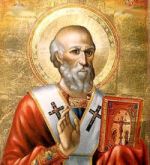Catechism of the Catholic Church
Share this paragraph of the Catechism:
Paragraph:
2575 Here again the initiative is God's. From the midst of the burning bush he calls Moses. 20 This event will remain one of the primordial images of prayer in the spiritual tradition of Jews and Christians alike. When "the God of Abraham, of Isaac, and of Jacob" calls Moses to be his servant, it is because he is the living God who wants men to live. God reveals himself in order to save them, though he does not do this alone or despite them: he calls Moses to be his messenger, an associate in his compassion, his work of salvation. There is something of a divine plea in this mission, and only after long debate does Moses attune his own will to that of the Savior God. But in the dialogue in which God confides in him, Moses also learns how to pray: he balks, makes excuses, above all questions: and it is in response to his question that the Lord confides his ineffable name, which will be revealed through his mighty deeds.
Move forward or back a paragraph: Previous | Next
Where this paragraph appears in the Catechism:
TABLE OF CONTENTS
» |
PART FOUR: CHRISTIAN PRAYER |
» |
SECTION ONE: PRAYER IN THE CHRISTIAN LIFE |
» |
CHAPTER ONE: THE REVELATION OF PRAYER |
» |
ARTICLE 1: IN THE OLD TESTAMENT |
Notes for the above paragraph:
20 Ex 3:1-10.
English Translation of the Cathechism of the Catholic Church for the United States of America © 1997, United States Catholic Conference, Inc.






